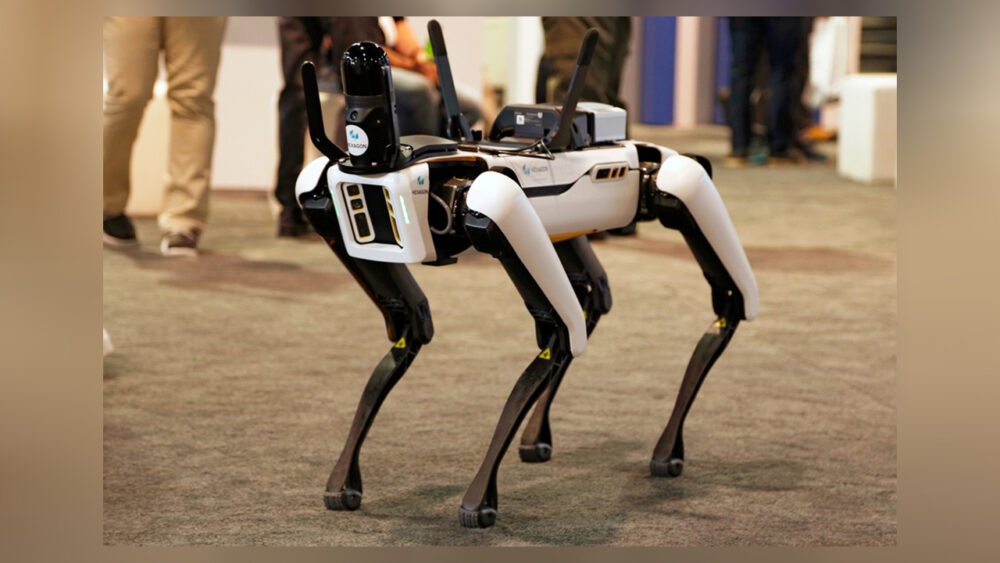A wave of tongue-in-cheek “robophobia” videos is spreading across social media, masking deeper anxieties about automation’s growing reach.
One parody video by Instagram user Will_Cunnington shows a man in the back of a Waymo-style rideshare, nervously whispering to his girlfriend about being chauffeured by a “tin skinned clanker.”
View this post on Instagram
Another post from NADWEYT captures a man knocking over a robodog after it bumps into him on the sidewalk. He hurls terms like “copperhead” and “clanker” at the machine. The caption partly reads, “clankers are everywhere nowadays.”
View this post on Instagram
In a third video, brandonvia_ plays a frustrated human teacher, restricting an “oil drinker” attempting to start class in his classroom in 2050, sparking exasperation from a fictional teacher. The caption: “iRobot had prepared us for this.”
View this post on Instagram
While the clips are satirical, they tap into a longstanding public unease about robots and artificial intelligence replacing human work — an anxiety reflected in years of Pew Research Center surveys.
The Breakdown
-
Satirical “robophobia” videos are trending on Instagram, mocking robots and AI
-
Pew Research shows Americans have long been more worried than excited about automation
-
UPS is cutting jobs in Dallas and nationwide as it shifts toward greater automation
-
Labor unions warn that these changes could reduce good-paying jobs and worsen inequality
- While many jobs are being automated, some industries are reducing their reliance on automation
In 2017, Pew found Americans were more than twice as likely to express worry (72%) than enthusiasm (33%) about a future where machines perform many jobs done by humans. Three-quarters expected such a shift to worsen economic inequality.
Some of their fears have materialized.
Just before the widespread release of ChatGPT and other popular AI models, Pew found in 2022 that around a fifth of American workers were in jobs that are the most exposed to AI (roles in which the most important activities may be either replaced or assisted by AI).
Some companies have apparently made similar observations and begun replacing humans with automation. On August 9, UPS told the Texas Workforce Commission it would cut 62 jobs in Dallas as part of the “largest network reconfiguration” in its history, a move that appeared to be part of a bigger plan to boost productivity through automation, The Dallas Express reported.
This comes after years of American cellphones being swamped with so-called ‘robocalls’ from automated services that are frequently connected to scams. One Wisconsin man told a local news broadcaster that he received 80 calls in one morning and 388 over a few days.
A Business Insider survey conducted through SurveyMonkey found that 46% of Americans said they were receiving spam phone calls on their mobile phone every day, with another 24% receiving them several times a week.
Pew’s researchers thought this phenomenon was driving Americans to answer their cellphones less, along with other widespread concerns about scammers.
This annoyance mirrors other concerns raised by labor advocates about robots diminishing the quality of life for humans.
“We wholeheartedly believe that human cashiers are more effective and valuable than the automated checkout machines,” Jennifer Foley of United Food and Commercial Workers Local 1000 told The Dallas Express earlier this year in response to retail self-checkout rollbacks. Her comments came amid reports that some major grocery store chains were souring on self-checkout, amid theft and technical problems.
This instance of automation facing setbacks contrasts with the other data that indicates a rapid advance of AI and automation.
As social media creators lampoon robots for comic effect, the technology they mock continues to expand in warehouses, transportation networks, and customer service desks. For many Americans, the satire may be easier to share than the economic reality.


